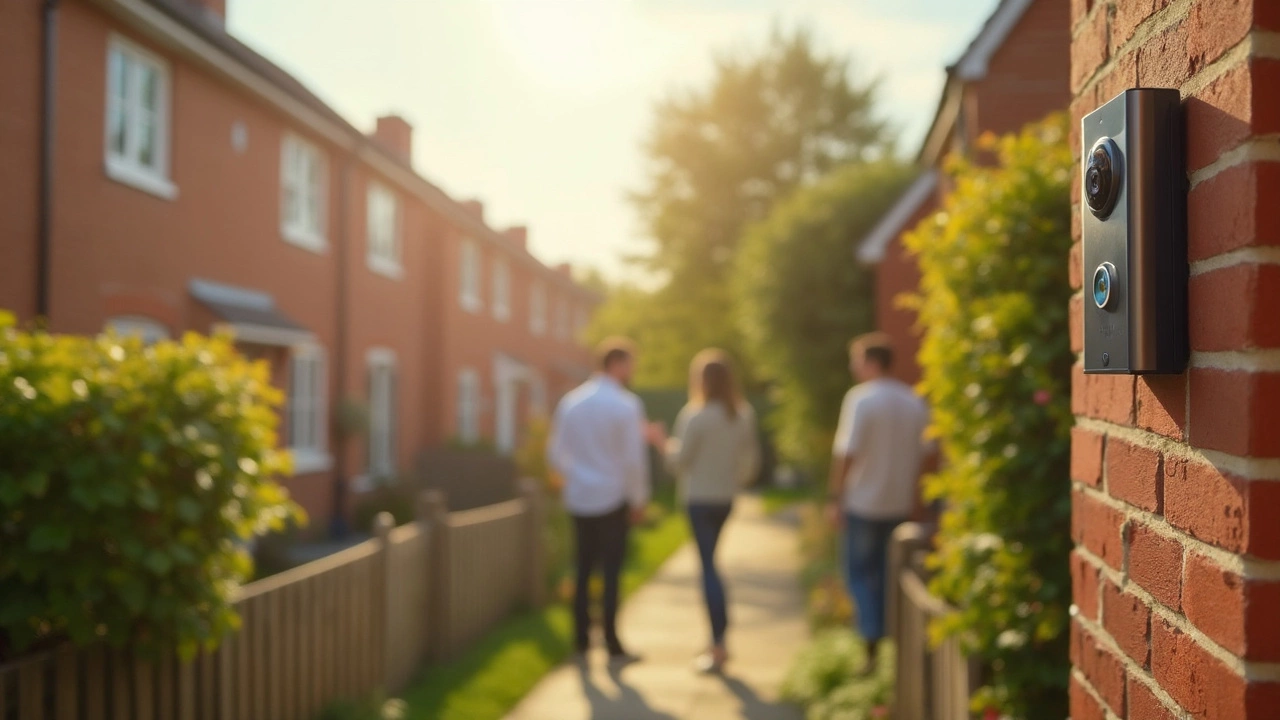If you’ve just bought a smart doorbell, you might be wondering whether you can install it wherever you like. The short answer is yes, but only if you follow a few clear rules. Ignoring those rules can lead to fines, neighbour complaints, or even a forced removal. Below we break down the main legal points and give you practical steps to stay on the safe side.
First, a video doorbell is considered a CCTV camera under UK law. That means the Data Protection Act 2018 and GDPR apply. You must have a legitimate reason for recording – protecting your property is accepted, but spying on neighbours isn’t.
Second, you need to put up a clear sign if the camera records continuously. A sign that says “CCTV in use” satisfies the requirement and avoids claims of hidden surveillance. If the camera only records when someone pushes the doorbell, a sign isn’t mandatory, but many still choose to display one for transparency.
Third, the footage you capture belongs to you, but you must store it securely. Using encrypted cloud storage or a locked local hard drive meets the security standard. Sharing the video with anyone who isn’t directly involved (like a neighbour) can breach privacy rules.
Fourth, if you rent your home, check your tenancy agreement. Some landlords forbid external modifications, and installing a wired doorbell may require their consent. Even a wireless unit might need permission if it involves drilling or changes to the door frame.
Start by checking the camera’s field of view. Make sure it points only at your doorstep, not at the street or adjacent windows. Adjust the angle or use a privacy mask feature if the device offers one.
Next, write a short privacy notice. It should include who you are, why you’re filming, how long you keep the footage, and how people can request access. Posting this notice on a visible part of your door or near the camera satisfies most legal expectations.
When you store footage, set an automatic deletion schedule. Keeping video for more than 30 days without a valid reason is frowned upon and can be seen as excessive data collection.
If you ever receive a complaint, respond promptly. Explain the purpose of the camera, show the privacy notice, and offer to adjust the angle if needed. Most disagreements can be defused with a simple conversation.
Finally, stay updated. Laws can change, especially around digital surveillance. A quick yearly check of the Information Commissioner's Office (ICO) guidance will keep you in line without extra effort.
By following these steps, you can enjoy the convenience of a smart doorbell while respecting privacy and avoiding legal trouble. It’s a win‑win: you get peace of mind, and your neighbours stay comfortable with your setup.

Navigating the legality of Ring doorbells in the UK can be tricky, especially considering privacy laws and neighbors' rights. While owning a Ring doorbell isn’t illegal, users should be cautious about where it's pointing. Catch some tips on how to stay in the clear legally and keep your neighborhood relations smooth.